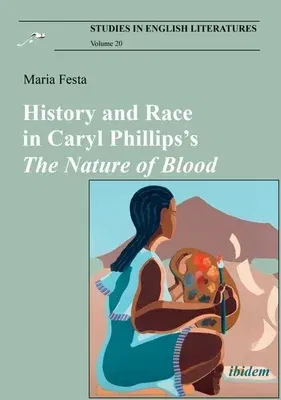Maria Festa
(Author)History and Race in Caryl Phillips's the Nature of BloodPaperback, 20 October 2020

Qty
1
Turbo
Ships in 2 - 3 days
In Stock
Free Delivery
Cash on Delivery
15 Days
Free Returns
Secure Checkout

Part of Series
Studies in English Literatures
Print Length
230 pages
Language
English
Publisher
Ibidem Press
Date Published
20 Oct 2020
ISBN-10
3838214331
ISBN-13
9783838214337
Description
Product Details
Author:
Book Format:
Paperback
Country of Origin:
US
Date Published:
20 October 2020
Dimensions:
20.57 x
14.73 x
1.27 cm
ISBN-10:
3838214331
ISBN-13:
9783838214337
Language:
English
Pages:
230
Publisher:
Weight:
226.8 gm